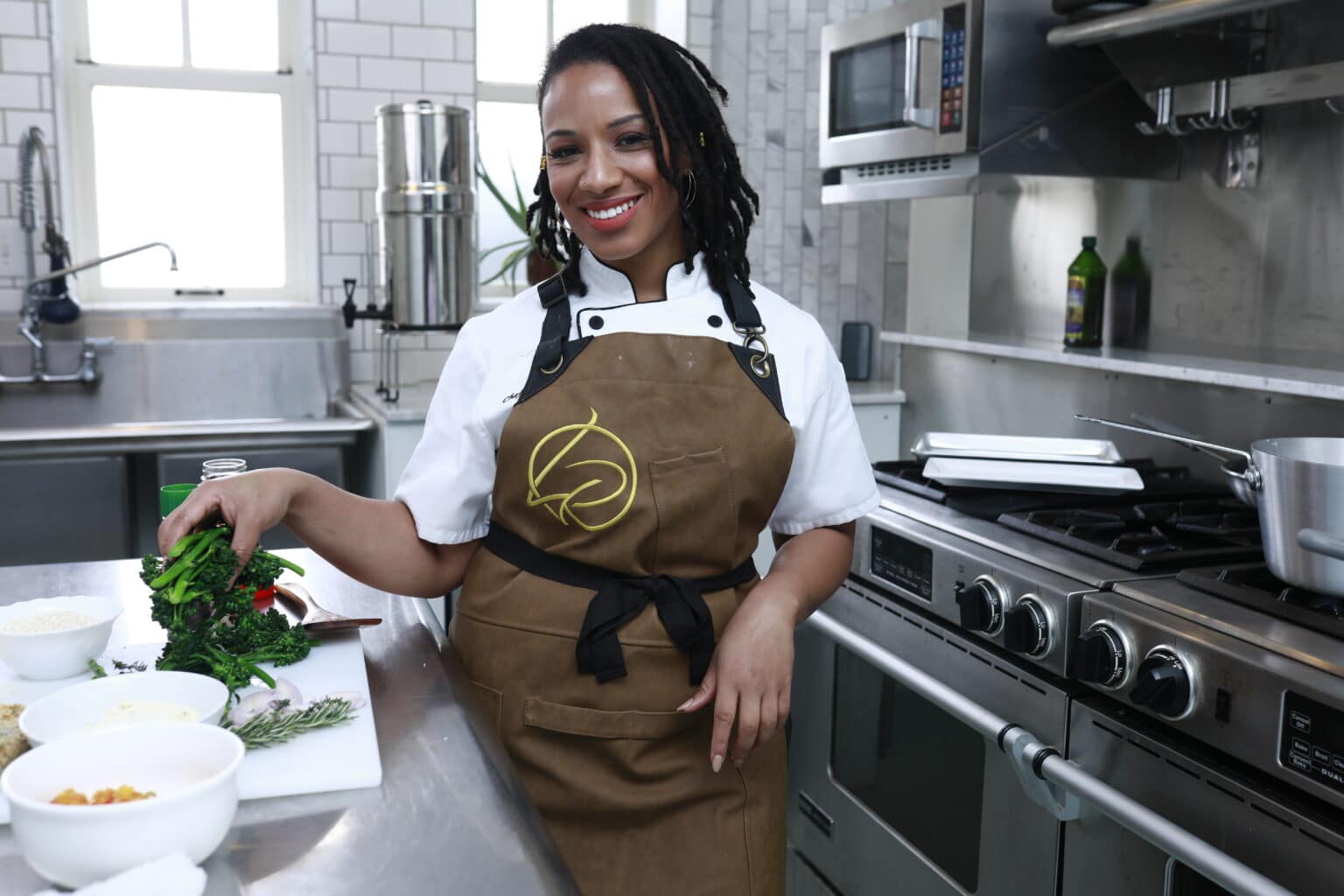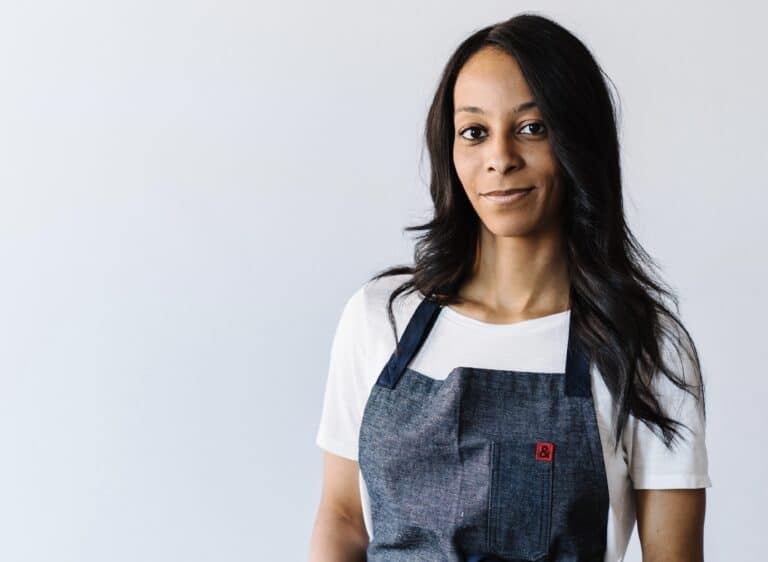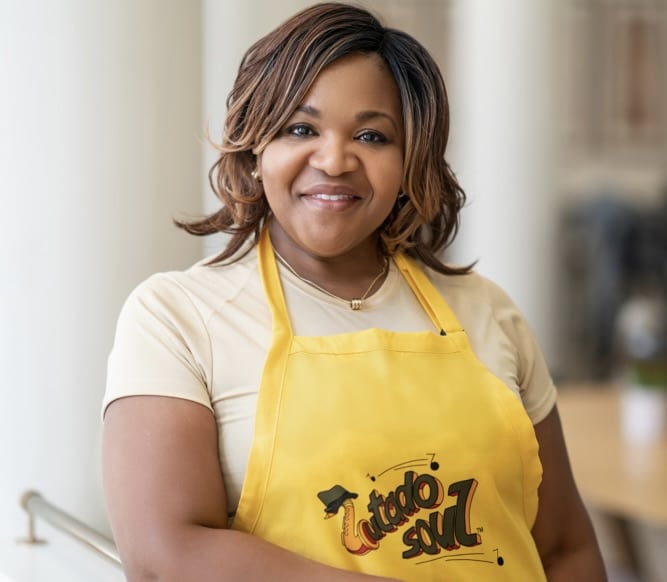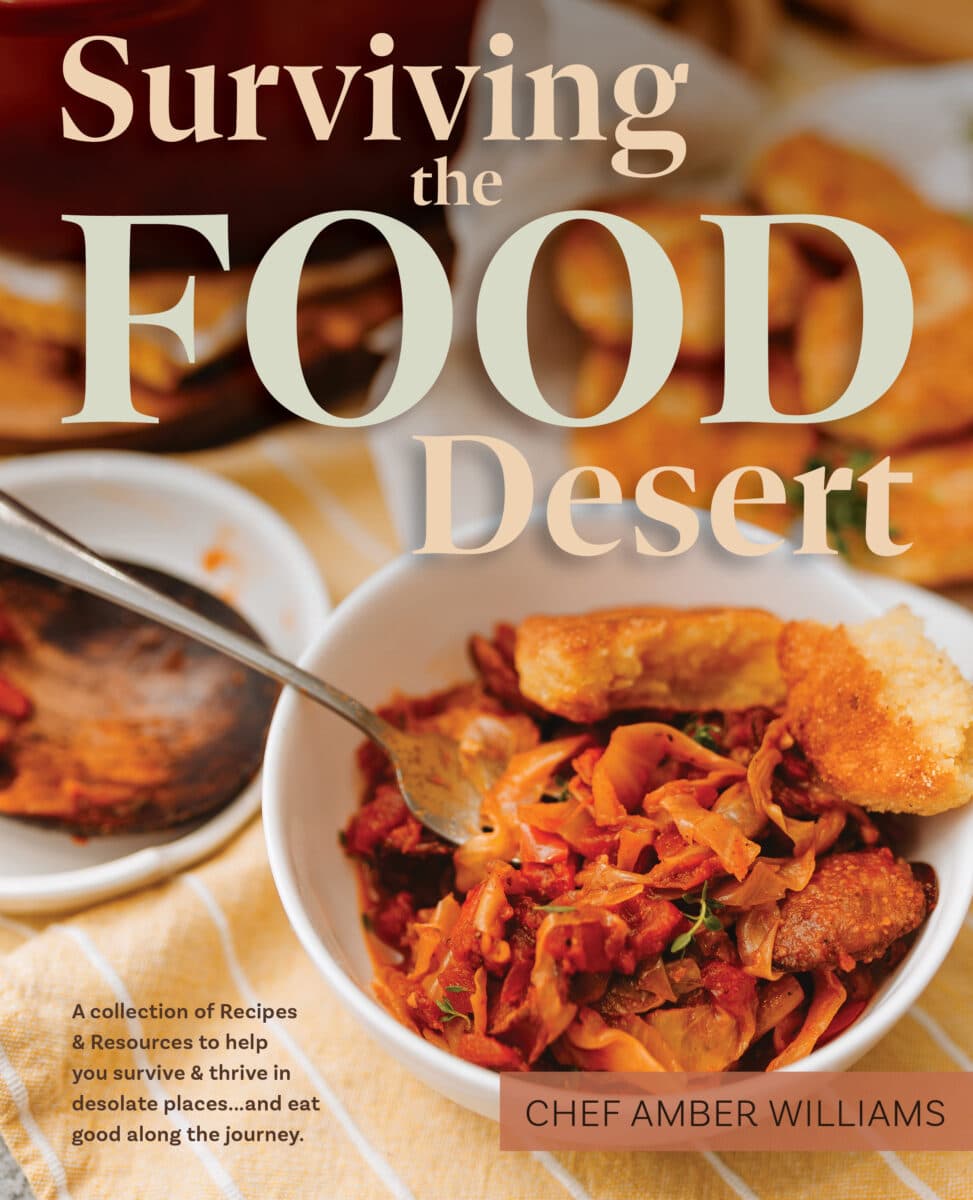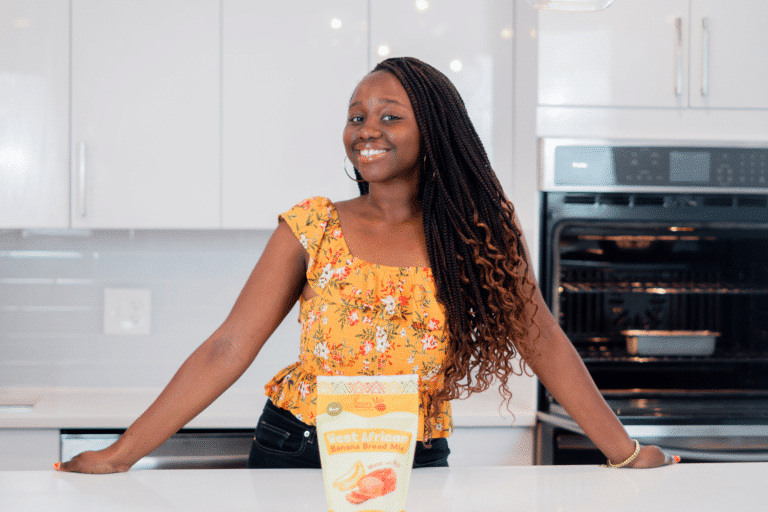|
Getting your Trinity Audio player ready...
|
When you picture a food desert, what image comes to mind? The term describes an area with limited access to fresh and affordable food sources. When living in these areas, trying to feed yourself or your family healthy meals can be a near-impossible task. Even with the help of food drives and nutrition assistance programs making food more accessible, there is still a large gap to be filled.
“We have a lot of access to the groceries, but there’s no education being brought forth to teach our people what to do with the resources they’re being given,” says chef Amber Williams, the visionary behind the Surviving the Food Desert Project (SFDP). The project aims to teach people how to maximize resources and create sustainable solutions to the ongoing food crisis.
The release of her newest cookbook, “Surviving the Food Desert,” offers a collection of recipes demonstrating the power of ingenuity and marks the first phase of the SFDP. As a proponent of food equity and a food desert survivor herself, Williams is working to bring change that will help people living in disadvantaged communities thrive where they are.
Turning Lemons Into Lemonade
Growing up in Oak Cliff, Texas, with a family of capable cooks, Williams always knew she wanted to be a chef and began cooking very young. “I couldn’t help but live and be raised in the kitchen, so I fell in love with food at an early age,” she explains.
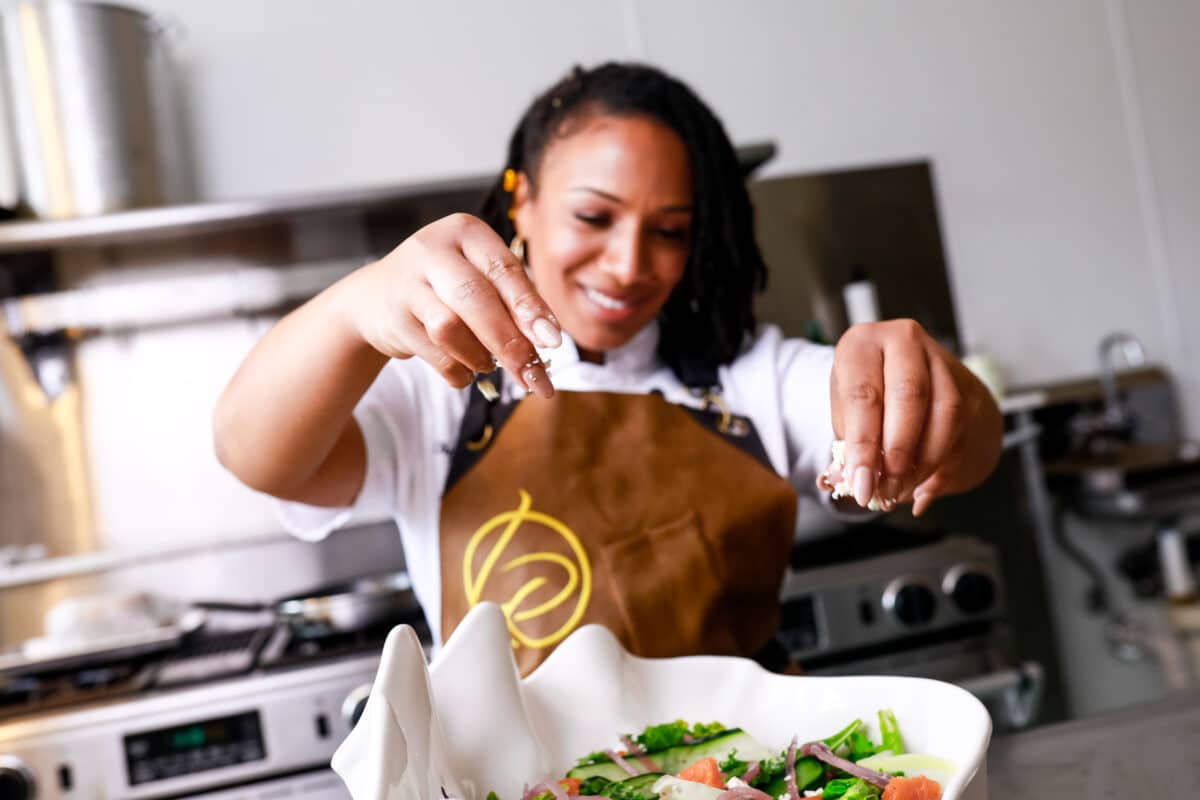
With a father from Texas and a mother from Louisiana, she inherited a rich blend of Southern and Cajun influences that helped shape her culinary signature.
Living in an area where fresh food was not easily accessible, Williams was taught to cook creatively and resourcefully with whatever was available. “I watched my mom cook out of food drive boxes and really make something out of nothing,” she recalls. This ability to transform limitations into opportunities, seeing lemons turn into lemonade, would define her journey as a chef and food advocate.
Taking the Leap
After graduating from Grambling University in 2011 with a bachelor’s in business management, the self-taught chef set her sights on starting her catering business. Starting with only “an email address and a Facebook page,” the entrepreneur brought her vision to life in 2014, establishing Le Rouge Cuisine.
Le Rouge Cuisine has evolved into an elevated Creole fusion concept, offering exclusive dining experiences and mouthwatering Cajun classics, all rooted in a dedicated effort to cook sustainably and minimize waste.
- Bomb Biscuit’s Erika Council Pays Tribute to Black Biscuit Makers in New Book
- Cynthia Hayes Creates Potato Magic with Zutado Soul
“Now that I have this platform, I want to make sure that I’m taking the knowledge that I grew up with and that I’m using it in my business,” she shares.
The name Le Rouge Cuisine roughly translates to The Red Kitchen in French, a nod to the chef’s Creole heritage and passion for her work. Chef Williams is positively impacting her community and using her resources to produce opportunities through her business and the Surviving the Food Desert cookbook and project.
Surviving the Food Desert with Hope
Williams talks about creating the cookbook that started it all and how it served as a guiding light for her during an extremely difficult time. “The cookbook came out of a lot of lonely, dark, struggle nights in the pandemic,” she reveals. “I had a lot of days where I had no clients, had no business, and I did not know what to do.”
On top of the challenges brought on by the pandemic in 2020, she was also confronted with the personal and communal struggles of food accessibility in her area. “I found myself back in those food drive lines I was in when I was a child,” she reflects.
In a food desert, driving to the nearest grocery store can range from inconvenient to impossible if you do not have the means to go. Knowing that many in her community lacked the transportation or funds to reach the closest grocery stores and relied on food drives, Williams felt compelled to address the issue locally.
“I took some of the food drive items I had in my house and I challenged myself to make as many unique recipes as I could out of the items that were already in there.”
The cookbook provides creative recipes that use “food-desert friendly” ingredients and a national resource guide to aid food desert communities nationwide. Throughout the book, Chef Williams extends words of hope and motivation, serving as a source of encouragement to those seeking a guiding light in challenging times.
Looking Ahead to Helping Communities
What began as a pandemic pastime has grown into a multi-stage initiative to alleviate the difficulties of food inequity through education. With the cookbook’s release, the culinary crusader is turning her attention to what comes next.
Williams shares her plans for the project’s second phase, a community kitchen space designed for commercial and educational purposes. The facility will feature high-tech kitchen classrooms, dining services, coworking areas and even a studio for food content creators.

“This building will be a space where we put community needs all in one place,” says the entrepreneur.
The chef is also set to create a no-sodium spice line and launch a community cooking class series that connects corporations with nonprofit organizations of their choice. “I think through understanding and sharing a meal together, we can probably bridge some gaps and learn about each other a little better.”
RELATED: Pinch-Dash-Done Authors Fight Food Insecurity with Generational Recipes
For more information about the Surviving the Food Desert project and the subsequent phases, you can visit Le Rouge Cuisine. To learn more about Chef Amber Williams and continue to follow her journey, you can follow her page on Instagram.
The cookbook “Surviving the Food Desert” is available through the Food Temptress Cookbook Store.

